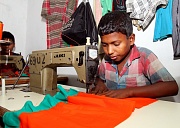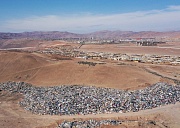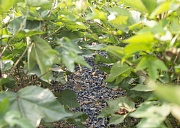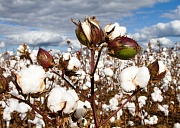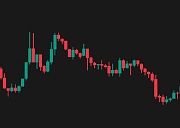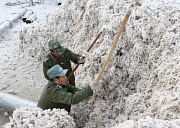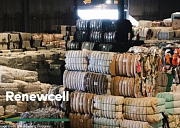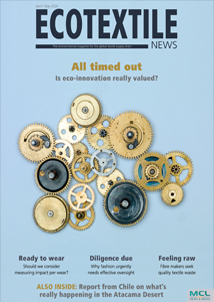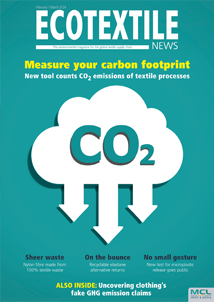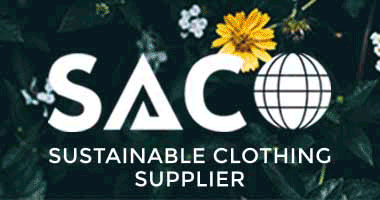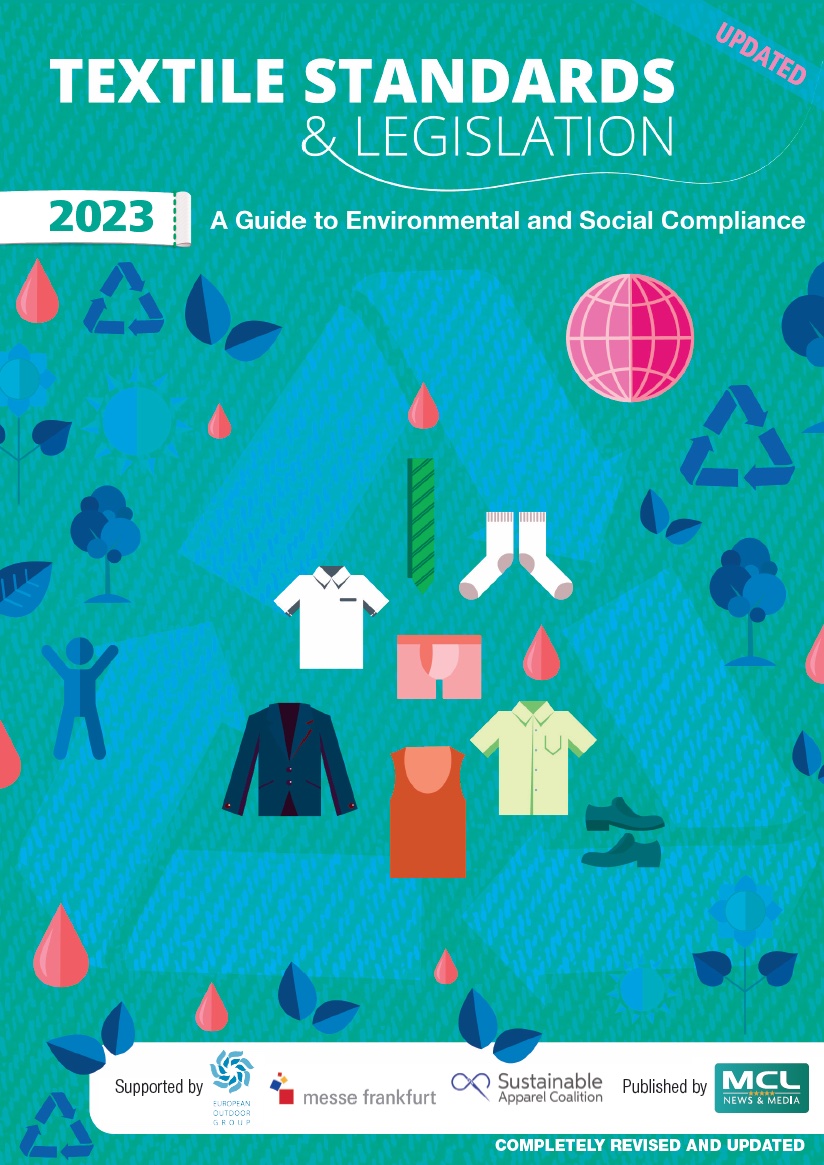Exclusive Insight
-
Friday, 19 July 2024
Cotton and climate - feeling the heat?
 In the second of his series of articles on how climate change is set to impact the cotton industry, cotton, and agriculture our correspondent Simon Ferrigno looks at data, legislation and mitigation. We are now as little as five years away from…
In the second of his series of articles on how climate change is set to impact the cotton industry, cotton, and agriculture our correspondent Simon Ferrigno looks at data, legislation and mitigation. We are now as little as five years away from… -
Friday, 14 June 2024
Good Fashion Fund shares lessons learned
 Billed as a first of its kind impact investment fund, the Good Fashion Fund was launched to provide finance for disruptive technologies in textile and garment factories in Bangladesh and India. Three years on, the partnership of the Laudes…
Billed as a first of its kind impact investment fund, the Good Fashion Fund was launched to provide finance for disruptive technologies in textile and garment factories in Bangladesh and India. Three years on, the partnership of the Laudes… -
Tuesday, 11 June 2024
Social dialogue in the global garment industry
 As a European-born consultant deeply engaged in labour rights advocacy, I've grappled with the harsh realities of coloniality's impact on workers. Marginalised communities face systemic relegation to the lowest labour hierarchies, perpetuating…
As a European-born consultant deeply engaged in labour rights advocacy, I've grappled with the harsh realities of coloniality's impact on workers. Marginalised communities face systemic relegation to the lowest labour hierarchies, perpetuating… -
Monday, 10 June 2024
Textile recycling - rip it up and start again
 I’m a child of the 1970’s and, whilst I can’t claim to have grown up in poverty, I was brought up to understand the importance of product longevity and the avoidance of waste. Recently I watched my football team, wearing a football shirt that I…
I’m a child of the 1970’s and, whilst I can’t claim to have grown up in poverty, I was brought up to understand the importance of product longevity and the avoidance of waste. Recently I watched my football team, wearing a football shirt that I… -
Tuesday, 04 June 2024
Impact per wear - fashion's forgotten metric?
 Mass retail and fast fashion, in particular, have introduced a new dynamic over the last few decades, while the industry’s latest game-changers are social shopping and ultra-fast online fashion. Some newcomers from Asia have quickly established…
Mass retail and fast fashion, in particular, have introduced a new dynamic over the last few decades, while the industry’s latest game-changers are social shopping and ultra-fast online fashion. Some newcomers from Asia have quickly established… -
Tuesday, 04 June 2024
SBTs for Nature - year one progress report
 One year ago, the University of Cambridge Institute for Sustainability Leadership (CISL), the Fashion Pact (TFP) and Conservation International mapped out how the fashion industry could implement its first Science-Based Targets for Nature. Their…
One year ago, the University of Cambridge Institute for Sustainability Leadership (CISL), the Fashion Pact (TFP) and Conservation International mapped out how the fashion industry could implement its first Science-Based Targets for Nature. Their… -
Friday, 31 May 2024
Is cotton coping with climate change?
 Cotton and agriculture correspondent Simon Ferrigno examines how the cotton industry is adapting to the impacts of climate change in the first of a new series. Pakistan recently warned of “heavy loss of life” due to glacial melting . In Brazil,…
Cotton and agriculture correspondent Simon Ferrigno examines how the cotton industry is adapting to the impacts of climate change in the first of a new series. Pakistan recently warned of “heavy loss of life” due to glacial melting . In Brazil,… -
Wednesday, 17 April 2024
Tackling the textile-to-textile recycling challenge
 As a new Textile Exchange report calls for an end to the use of both virgin synthetic textiles and polyester recycled from plastic bottles by the end of the decade, we spoke to three textile-to-textile recycling pioneers about their ambitions. All…
As a new Textile Exchange report calls for an end to the use of both virgin synthetic textiles and polyester recycled from plastic bottles by the end of the decade, we spoke to three textile-to-textile recycling pioneers about their ambitions. All… -
Thursday, 11 April 2024
Textile innovation - when good ideas go bad...
 Phil Patterson argues that textile industry eco-innovators selling ineffective, badly marketed, or over-priced technology to shopkeepers is a badly flawed business model that works for no-one. It’s incredibly pleasing there’s so much work being done…
Phil Patterson argues that textile industry eco-innovators selling ineffective, badly marketed, or over-priced technology to shopkeepers is a badly flawed business model that works for no-one. It’s incredibly pleasing there’s so much work being done… -
Tuesday, 09 April 2024
Heads above the parapet in Myanmar
 Journalists working for the Myanmar Labour News (MLN) website - which reports on conditions from inside the country's factories - recently revealed that reports of worker abuses had almost tripled in a year. In its annual report, MLN said it had…
Journalists working for the Myanmar Labour News (MLN) website - which reports on conditions from inside the country's factories - recently revealed that reports of worker abuses had almost tripled in a year. In its annual report, MLN said it had… -
Monday, 08 April 2024
Cellulosic fibre suppliers take stock
 Lenzing has paused production of its lyocell-based Tencel Refibra fibres from cotton waste due to a shortage of high-quality recycled pulp. This is a good example of how the infrastructure for the collection, sorting, and re-processing of…
Lenzing has paused production of its lyocell-based Tencel Refibra fibres from cotton waste due to a shortage of high-quality recycled pulp. This is a good example of how the infrastructure for the collection, sorting, and re-processing of… -
Friday, 05 April 2024
Due diligence - reversing the race to the bottom
 Alexander Kohnstamm, executive director of Fair Wear, on why the textile sector urgently needs mandatory, OECD-based due diligence. The long-negotiated EU Corporate Sustainability Due Diligence Directive (CSDDD) was put in jeopardy at the very last…
Alexander Kohnstamm, executive director of Fair Wear, on why the textile sector urgently needs mandatory, OECD-based due diligence. The long-negotiated EU Corporate Sustainability Due Diligence Directive (CSDDD) was put in jeopardy at the very last… -
Thursday, 04 April 2024
Impact per wear - forgotten fashion metric?
 The relevance of impact per wear is increasing as faster fashion accelerates and more clothing is discarded earlier. Investor analyst Rogier van Mazijk takes a look at how and why this useful metric is often overlooked. The significant changes that…
The relevance of impact per wear is increasing as faster fashion accelerates and more clothing is discarded earlier. Investor analyst Rogier van Mazijk takes a look at how and why this useful metric is often overlooked. The significant changes that… -
Wednesday, 03 April 2024
What's really going on in Chile's Atacama Desert?
 Our correspondent Lavinia Muth visited Chile to report on the world’s biggest mountain of fashion waste but came away with a different perspective – and a very personal story. Reports of an ever-growing mountain of textile waste in Chile's Atacama…
Our correspondent Lavinia Muth visited Chile to report on the world’s biggest mountain of fashion waste but came away with a different perspective – and a very personal story. Reports of an ever-growing mountain of textile waste in Chile's Atacama… -
Tuesday, 02 April 2024
EU fabric suppliers: cautiously optimistic
 MUNICH – While fabric suppliers at the Performance Days event in Munich remained cautious about sustainable innovation in the current uncertain economic climate, many remain optimistic that regulation around waste and the circular economy will still…
MUNICH – While fabric suppliers at the Performance Days event in Munich remained cautious about sustainable innovation in the current uncertain economic climate, many remain optimistic that regulation around waste and the circular economy will still… -
Thursday, 28 March 2024
Bharat Tex - India's largest global textile event
 Bringing together 3,500 exhibitors from across the entire value chain under one roof for the first time, the theme of Bharat Tex 2024 emphasised India’s capability to provide end-to-end textile solutions. Spread across nearly two million square feet…
Bringing together 3,500 exhibitors from across the entire value chain under one roof for the first time, the theme of Bharat Tex 2024 emphasised India’s capability to provide end-to-end textile solutions. Spread across nearly two million square feet… -
Thursday, 28 March 2024
Tracking sustainability through the supply chain
 Despite ongoing political wrangling, the European Union’s (EU) Corporate Sustainability Due Diligence Directive (CSDDD) looks like it will finally make it into the statute book - albeit with significant concessions. But what’s this new directive…
Despite ongoing political wrangling, the European Union’s (EU) Corporate Sustainability Due Diligence Directive (CSDDD) looks like it will finally make it into the statute book - albeit with significant concessions. But what’s this new directive… -
Wednesday, 27 March 2024
Are textile innovators hitting the wrong target?
 Are fashion brands really the best customers for textile innovators, asks Katherine Albertson, a former project manager with a US bio-based materials pioneer. Renewcell’s declaration of bankruptcy was sad, but hardly shocking. That appears to be the…
Are fashion brands really the best customers for textile innovators, asks Katherine Albertson, a former project manager with a US bio-based materials pioneer. Renewcell’s declaration of bankruptcy was sad, but hardly shocking. That appears to be the… -
Wednesday, 27 March 2024
Fashion’s future fragmented fabric landscape
 Last week’s Fashion for Good event in The Netherlands became a frontline for contrasting visions and opinions about the future of existing and next-generation materials used in the fashion sector. Will there be a return to natural fibres?…
Last week’s Fashion for Good event in The Netherlands became a frontline for contrasting visions and opinions about the future of existing and next-generation materials used in the fashion sector. Will there be a return to natural fibres?… -
Tuesday, 26 March 2024
Renewcell - when risk doesn’t equal reward
 With the deadline for offers for bankrupt textile-to-textile recycling pioneer Renewcell less than 48 hours away, Ecotextile News editor John Mowbray argues that the Swedish company's collapse was down to a failure by brands, investors and the…
With the deadline for offers for bankrupt textile-to-textile recycling pioneer Renewcell less than 48 hours away, Ecotextile News editor John Mowbray argues that the Swedish company's collapse was down to a failure by brands, investors and the… -
Monday, 25 March 2024
Haute couture capital sets sights on fast fashion
 Baptiste Carriere-Pradal, co-founder of the 2BPolicy consultancy, considers the ambitions of Paris to move on from being the capital of fashion to become a beacon for fashion legislation. For nearly two decades, France has been toying with the idea…
Baptiste Carriere-Pradal, co-founder of the 2BPolicy consultancy, considers the ambitions of Paris to move on from being the capital of fashion to become a beacon for fashion legislation. For nearly two decades, France has been toying with the idea… -
Tuesday, 13 February 2024
Spilling the dirt on compostable stretch denim
 Italian textile manufacturer Candiani has shared details of an experiment to show off the compostable qualities of what it claims is the world's first biodegradable stretch denim. A visit to his local butcher in Milan gave Alberto Candiani the idea…
Italian textile manufacturer Candiani has shared details of an experiment to show off the compostable qualities of what it claims is the world's first biodegradable stretch denim. A visit to his local butcher in Milan gave Alberto Candiani the idea… -
Monday, 12 February 2024
California’s climate of disclosure
 With California's newly-implemented climate disclosure laws said to be the most wide-ranging introduced so far, we take a look at what they will mean for businesses. There’s no doubt as to the alarming impact of climate change in the US state – with…
With California's newly-implemented climate disclosure laws said to be the most wide-ranging introduced so far, we take a look at what they will mean for businesses. There’s no doubt as to the alarming impact of climate change in the US state – with… -
Saturday, 10 February 2024
Why decarbonisation depends on data
 HONG KONG – With 2024 already here, it’s too late for any one organisation to roll out a strategy that can guarantees the whole textile sector can reduce its carbon emissions by 45% in the next seven years – a figure called for by scientists if the…
HONG KONG – With 2024 already here, it’s too late for any one organisation to roll out a strategy that can guarantees the whole textile sector can reduce its carbon emissions by 45% in the next seven years – a figure called for by scientists if the… -
Friday, 09 February 2024
Fashion’s fake GHG emission claims
 Lutz Walter, secretary general of the European Technology Platform for the Future of Textiles, outlines why the claim that the fashion industry is to blame for 10% of global greenhouse gas emissions is wrong – and why this matters. Four years after…
Lutz Walter, secretary general of the European Technology Platform for the Future of Textiles, outlines why the claim that the fashion industry is to blame for 10% of global greenhouse gas emissions is wrong – and why this matters. Four years after… -
Thursday, 08 February 2024
'Industry first' microplastics test developed
 Italian textile manufacturer Aquafil has developed what it claims is the first methodology to precisely measure the quality and quantity of microplastics released in the textile industry. The company says the method, developed in partnership with…
Italian textile manufacturer Aquafil has developed what it claims is the first methodology to precisely measure the quality and quantity of microplastics released in the textile industry. The company says the method, developed in partnership with… -
Wednesday, 07 February 2024
New tool counts textile process CO2 emissions
 A new tool from the Apparel Impact Institute will be able to help calculate the cumulative CO2 emissions for each process and sub-process from textile manufacturing – an industry first. On the 22nd February, we will broadcast the first of a 3-part…
A new tool from the Apparel Impact Institute will be able to help calculate the cumulative CO2 emissions for each process and sub-process from textile manufacturing – an industry first. On the 22nd February, we will broadcast the first of a 3-part… -
Tuesday, 16 January 2024
Brands' integrity on energy rated 'shallow'
 BERLIN – The integrity of the renewable electricity commitments of fashion giants H&M, Zara owner Inditex, Nike, Gap and Lululemon has been found wanting by a new report from the New Climate Institute. The non-profit assessed brands' renewable…
BERLIN – The integrity of the renewable electricity commitments of fashion giants H&M, Zara owner Inditex, Nike, Gap and Lululemon has been found wanting by a new report from the New Climate Institute. The non-profit assessed brands' renewable… -
Tuesday, 02 January 2024
Regenerative cotton – don't believe all the hype
 Simon Ferrigno argues that regenerative cotton is about local solutions, designed by and with local people, and sold at a price that they can live on. Not a system where cotton producers are constantly observed by new digital tools and data owners,…
Simon Ferrigno argues that regenerative cotton is about local solutions, designed by and with local people, and sold at a price that they can live on. Not a system where cotton producers are constantly observed by new digital tools and data owners,… -
Thursday, 21 December 2023
Expert panel talks ESG in fashion
 With environmental, social and governance (ESG) investment currently in the doldrums, a panel of experts explain what this could mean for the fashion and retail sectors after its politicisation in the USA; and after UK investors shy away from this…
With environmental, social and governance (ESG) investment currently in the doldrums, a panel of experts explain what this could mean for the fashion and retail sectors after its politicisation in the USA; and after UK investors shy away from this… -
Tuesday, 19 December 2023
Blanket PFAS ban poses textiles conundrum
 The world of eco-textiles is littered with issues that are not clear cut, where there are pluses and minuses, and where compromise rules as stakeholders seek a ‘least bad outcome’ or a reduced environmental impact. But, a blanket ban on PFAS would…
The world of eco-textiles is littered with issues that are not clear cut, where there are pluses and minuses, and where compromise rules as stakeholders seek a ‘least bad outcome’ or a reduced environmental impact. But, a blanket ban on PFAS would… -
Monday, 11 December 2023
Back to the future for cotton
 David Styles speaks to a firm that works with the European Space Agency, Cotton made in Africa and a geospatial technology specialist to explore why satellite imagery is being used to remotely monitor cotton crops. Is this the next phase of the…
David Styles speaks to a firm that works with the European Space Agency, Cotton made in Africa and a geospatial technology specialist to explore why satellite imagery is being used to remotely monitor cotton crops. Is this the next phase of the… -
Thursday, 07 December 2023
GFA Monitor - many voices, one mission
 DUBAI - Launched at COP28 climate summit, the 2023 GFA Monitor is the second edition of a multi-agency report from the Global Fashion Agenda (GFA) that aims to combine the expertise of leading industry bodies across the fashion and textiles…
DUBAI - Launched at COP28 climate summit, the 2023 GFA Monitor is the second edition of a multi-agency report from the Global Fashion Agenda (GFA) that aims to combine the expertise of leading industry bodies across the fashion and textiles… -
Wednesday, 06 December 2023
New report links global brands to forced labour
 SHEFFIELD - Thirty nine global brands and retailers are at "high risk" of selling goods with exposure to Uyghur forced labour onto the European market, according to a new study. The report, entitled ‘Tailoring Responsibility: Tracing Apparel Supply…
SHEFFIELD - Thirty nine global brands and retailers are at "high risk" of selling goods with exposure to Uyghur forced labour onto the European market, according to a new study. The report, entitled ‘Tailoring Responsibility: Tracing Apparel Supply… -
Tuesday, 05 December 2023
Woolly thinking?
 OPINION - The Woolmark Company's ongoing campaign against synthetic textiles appears to be full of contradictions A recent LinkedIn post by Livia Firth, the co-founder and creative director of the Eco-Age PR and lobbying agency, on a new campaign…
OPINION - The Woolmark Company's ongoing campaign against synthetic textiles appears to be full of contradictions A recent LinkedIn post by Livia Firth, the co-founder and creative director of the Eco-Age PR and lobbying agency, on a new campaign… -
Monday, 04 December 2023
Are influencers authentic on sustainable fashion?
 Influencing by definition is not new, but never before has it been so easy for an average “nobody” to join a social media platform, garner a following and turn themselves into a self-made ‘sustainable fashion influencer’. Tom Bithell explores.
Influencing by definition is not new, but never before has it been so easy for an average “nobody” to join a social media platform, garner a following and turn themselves into a self-made ‘sustainable fashion influencer’. Tom Bithell explores. -
Monday, 04 December 2023
A rallying cry for next gen materials
 If it's true that you know who your real friends are when the chips are down, then Nicole Rycroft, the founder and executive director of Canopy, is a real friend of Renewcell, in particular, and the next gen materials sector in general,…
If it's true that you know who your real friends are when the chips are down, then Nicole Rycroft, the founder and executive director of Canopy, is a real friend of Renewcell, in particular, and the next gen materials sector in general,… -
Friday, 01 December 2023
Textile Exchange production report unpacked
 LONDON - Textile Exchange's 10th annual Materials Market Report, formerly the Preferred Fiber and Materials Market Report, paints something of a bleak picture of the industry's sustainability efforts. It found that global fibre production increased…
LONDON - Textile Exchange's 10th annual Materials Market Report, formerly the Preferred Fiber and Materials Market Report, paints something of a bleak picture of the industry's sustainability efforts. It found that global fibre production increased… -
Monday, 27 November 2023
Ecosystex - bridging the innovation gap
 More than 100 stakeholders from 16 countries converged on Barcelona for the first conference of the Ecosystex coalition of research and industry experts involved in EU-funded innovation projects for textile sustainability. Launched earlier this…
More than 100 stakeholders from 16 countries converged on Barcelona for the first conference of the Ecosystex coalition of research and industry experts involved in EU-funded innovation projects for textile sustainability. Launched earlier this… -
Tuesday, 21 November 2023
What's gone wrong at Renewcell?
 Renewcell was the darling of circular fashion this time last year, establishing an industrial scale flagship factory at Sundsvall, Sweden, while most of its next gen materials rivals were barely out of the lab. But, a year on from launching the…
Renewcell was the darling of circular fashion this time last year, establishing an industrial scale flagship factory at Sundsvall, Sweden, while most of its next gen materials rivals were barely out of the lab. But, a year on from launching the… -
Friday, 27 October 2023
Q&A - next gen vs recycled leather
 Searches for next gen leather alternatives have grabbed the attention of those keen to find a more sustainable alternative to animal-based leather in recent years. H&M has featured the cactus-based leather of Mexican company Desserto while Zara has…
Searches for next gen leather alternatives have grabbed the attention of those keen to find a more sustainable alternative to animal-based leather in recent years. H&M has featured the cactus-based leather of Mexican company Desserto while Zara has… -
Thursday, 12 October 2023
Managing customer allergies to textile chemicals
 Managing customer allergies to minute quantities of textile chemicals is far from simple and the industry must accept that a zero issue situation is impossible. Sometimes it’s easy to establish cause and effect, sometimes it’s easy to conclusively…
Managing customer allergies to minute quantities of textile chemicals is far from simple and the industry must accept that a zero issue situation is impossible. Sometimes it’s easy to establish cause and effect, sometimes it’s easy to conclusively… -
Wednesday, 11 October 2023
Why risk should equal reward for suppliers
 The textile industry is made up of all sorts of manufacturers, each with their own focus and approach. On one end of the spectrum are smaller mills that operate under short-term goals, driven by immediate client needs, market trends and the…
The textile industry is made up of all sorts of manufacturers, each with their own focus and approach. On one end of the spectrum are smaller mills that operate under short-term goals, driven by immediate client needs, market trends and the… -
Tuesday, 10 October 2023
Regulation drives next gen fibre interest
 An entirely new category of European-created textile fibres is rapidly emerging based on reclaiming textile waste and its global influence could be huge. At the same time, it’s claimed this move could go a considerable way towards reversing some of…
An entirely new category of European-created textile fibres is rapidly emerging based on reclaiming textile waste and its global influence could be huge. At the same time, it’s claimed this move could go a considerable way towards reversing some of… -
Monday, 09 October 2023
The tough choices facing brands in Myanmar
 As human rights continue to deteriorate in Myanmar, more and more global brands are putting a halt on sourcing from the country. But what about the garment workers left behind? Swedish fashion giant H&M finally announced that it is to stop sourcing…
As human rights continue to deteriorate in Myanmar, more and more global brands are putting a halt on sourcing from the country. But what about the garment workers left behind? Swedish fashion giant H&M finally announced that it is to stop sourcing… -
Friday, 06 October 2023
Independent Higg tools review unpacked
 The much-anticipated, KPMG-led technical review of the Sustainable Apparel Coalition's Higg MSI and PM tools has been finally released. It was back in June 2022 that the Sustainable Apparel Coalition (SAC) announced it was commissioning an…
The much-anticipated, KPMG-led technical review of the Sustainable Apparel Coalition's Higg MSI and PM tools has been finally released. It was back in June 2022 that the Sustainable Apparel Coalition (SAC) announced it was commissioning an… -
Friday, 25 August 2023
Purifying the textile waste stream
 Using artificial intelligence to extract trims, zips and buttons to create clean textile feedstock, a Belgian company at the recent ITMA in Milan may have solved how to close the gap between textile sorting and recycling. Although precise global…
Using artificial intelligence to extract trims, zips and buttons to create clean textile feedstock, a Belgian company at the recent ITMA in Milan may have solved how to close the gap between textile sorting and recycling. Although precise global… -
Monday, 21 August 2023
Brave new world(ly) - Higg rebrand interview
 "You can't use that," laughs James Schaffer, after tripping over 'Worldly' - the rebranded new name of the Higg technology company which runs the Higg Index suite of tools for the Sustainable Apparel Coalition (SAC) and is now branching out with new…
"You can't use that," laughs James Schaffer, after tripping over 'Worldly' - the rebranded new name of the Higg technology company which runs the Higg Index suite of tools for the Sustainable Apparel Coalition (SAC) and is now branching out with new… -
Monday, 21 August 2023
The loops of textile circularity
 Various debates have cynically unpicked the efforts of brands and retailers in a bid to disprove the viability of the concept of circularity, or more so to uncover the true motives behind these circular endeavours.Often these reports and articles…
Various debates have cynically unpicked the efforts of brands and retailers in a bid to disprove the viability of the concept of circularity, or more so to uncover the true motives behind these circular endeavours.Often these reports and articles… -
Thursday, 17 August 2023
How Shein and Temu ‘evade restrictions’
 WASHINGTON – US legislators are concerned that Chinese ultra-fast fashion retailers, like Shein and Temu, are out-flanking the Uyghur Forced Labor Prevention Act (UFLPA) which bans imports from Xinjiang on the assumption they are made with forced…
WASHINGTON – US legislators are concerned that Chinese ultra-fast fashion retailers, like Shein and Temu, are out-flanking the Uyghur Forced Labor Prevention Act (UFLPA) which bans imports from Xinjiang on the assumption they are made with forced…
Back Issue Archive
Other Publications from MCL News & Media


















